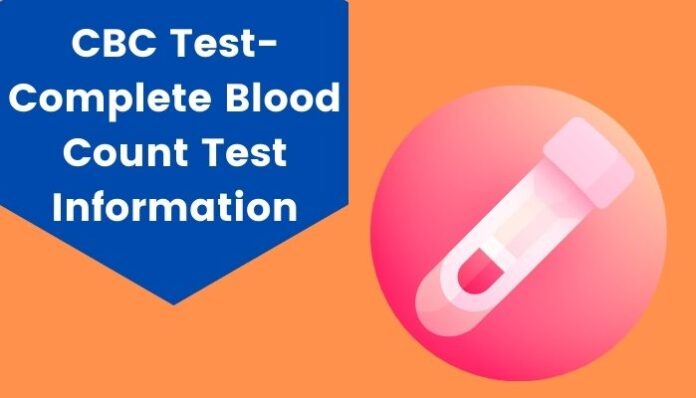Wondering why a CBC test is done or what is a CBC test? The CBC blood test is a common diagnostic test that helps in diagnosing and finding ailments or disorders of a highly specific type. The complete blood count test is offered by almost all healthcare and diagnostic service providers. The CBC test price may also vary, depending on the service provider and various other factors.
CBC Test Result Indicators
Here are some of the indicators arising from the CBC test:| Blood Component | Normal Levels |
| Platelet Count | 150,000 to 450,000/mcL |
| Red Blood Cell | In men: 4.32-5.72 million cells/mcL In women: 3.90-5.03 million cells/mcL |
| Hematocrit | In men: 38.8-50.0 percent In women: 34.9-44.5 percent |
| Hemoglobin | In men: 135-175 grams/L In women: 120-155 grams/L |
| White Blood Cell Count | 3,500 to 10,500 cells/mcL |
You can now view the CBC test normal range or the CBC normal range as it is given in your CBC test report. This will help you consult the doctor and get proper treatment if any specific condition is diagnosed.
What is CBC?
The CBC test means a complete blood count test that diagnoses specific types of ailments or illnesses. The CBC test includes check-ups for blood cell counts and also whether there are any reductions or increases in the same. The normal range will vary on the basis of the person’s gender and age. The laboratory report will indicate the normal values as well. CBC testing helps in the diagnosis of several types of conditions, right from infections and anemia to even serious diseases like cancer.Blood Cell Types
Tracking blood cell level changes may help doctors find disorders and analyze the overall health levels of patients. The CBC test measures three blood cell types, namely-1. Red blood cells
They transport oxygen throughout the entire body while helping remove carbon dioxide simultaneously. CBC tracks two components, namely hematocrit (percentage of RBCs in the blood) and hemoglobin (the oxygen-carrying protein in the blood). Lower levels of both of them indicate anemia or iron deficiency.2. White blood cells
They help the body combat infections and CBC tests measure the various types and counts of the same in the body. Any abnormal reduction or increase in the types/number of white blood cells may indicate serious infections, cancer, or inflammation within the body.3. Platelets
They help in blood clotting and controlling overall bleeding. Whenever you have a cut and the bleeding stops, it is due to the role played by platelets. Any changes may come with high bleeding risks while indicating any internal medical ailment of a serious nature.When do you need the CBC Test?
- It may be recommended as part of your routine check-up by your doctor.
- If you have sudden bruising or bleeding among such symptoms.
- The doctor may wish to evaluate your overall health and diagnose indicators of any ailment from symptoms like fever, tiredness, weakness, swelling, bleeding, and redness among others.
- Doctors may ask for the CBC test to track your health levels if you have already been diagnosed with an illness that impacts the counts of blood cells.
- The CBC test may be needed for monitoring overall medical treatment in some cases.
Preparation
Wear a shirt or outfit with shorter sleeves or sleeves which may be rolled up. You can follow a regular eating regime before the CBC test. Yet, your doctor may recommend fasting for a specific duration before the procedure.The Procedure that is followed
- Your skin is cleaned with antiseptic.
- A tourniquet or band is put around the upper arm.
- A needle is inserted for the collection of the blood sample.
- The band is removed.
- The area is covered with a bandage for stopping the bleeding.
- The sample is labeled and sent for analysis.
You may feel a pinching or pricking sensation when the needle is inserted. Some people also report feelings of lightheadedness or dizziness although this is only temporary. CBC test results are usually provided within a few hours or a day after the procedure.
In the case of infants and little ones, the heel of the feet is sterilized before the nurse uses a tiny lancet or needle to prick the same. The heel will be squeezed gently by the nurse for the collection of the blood sample accordingly.


